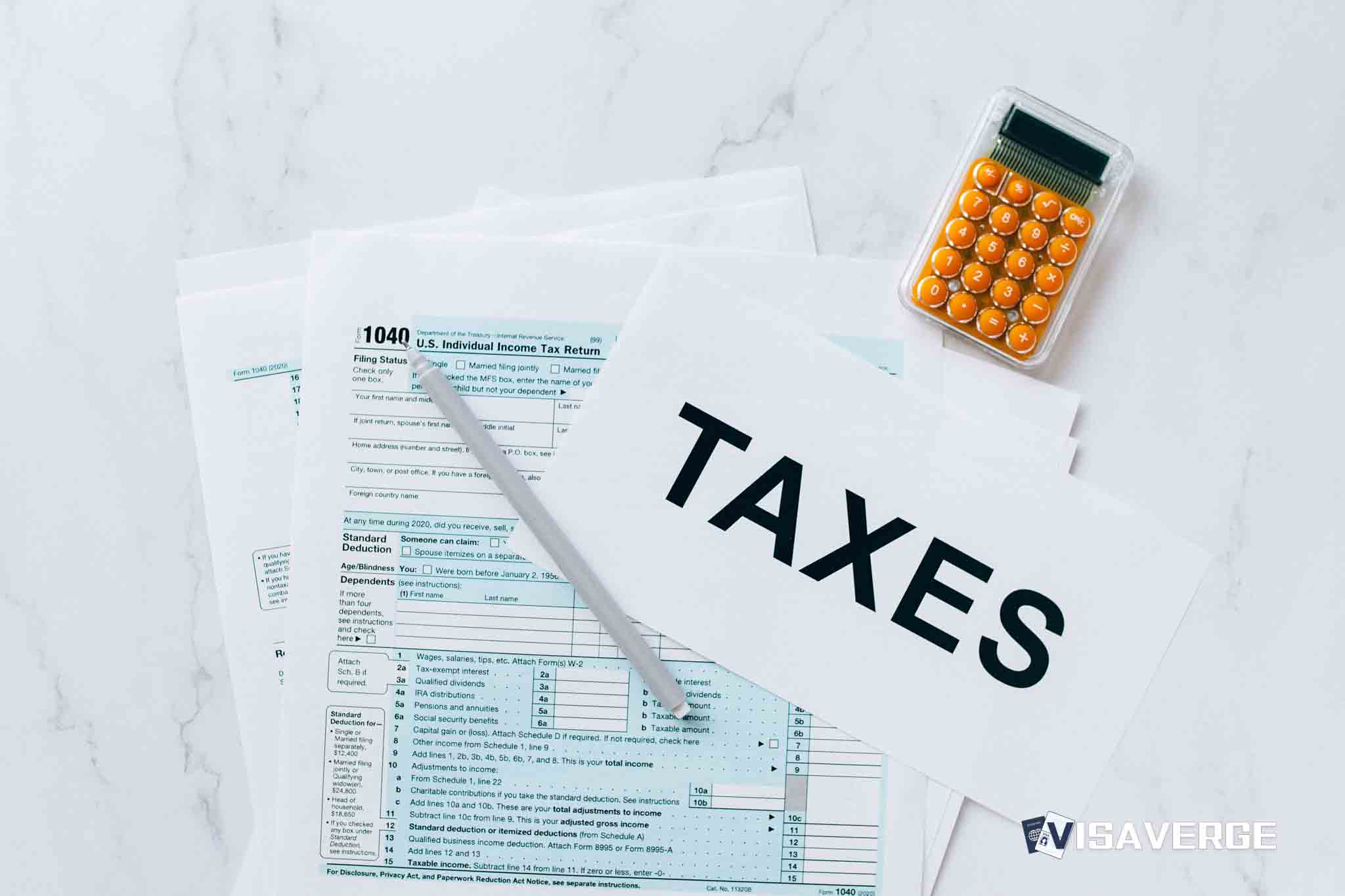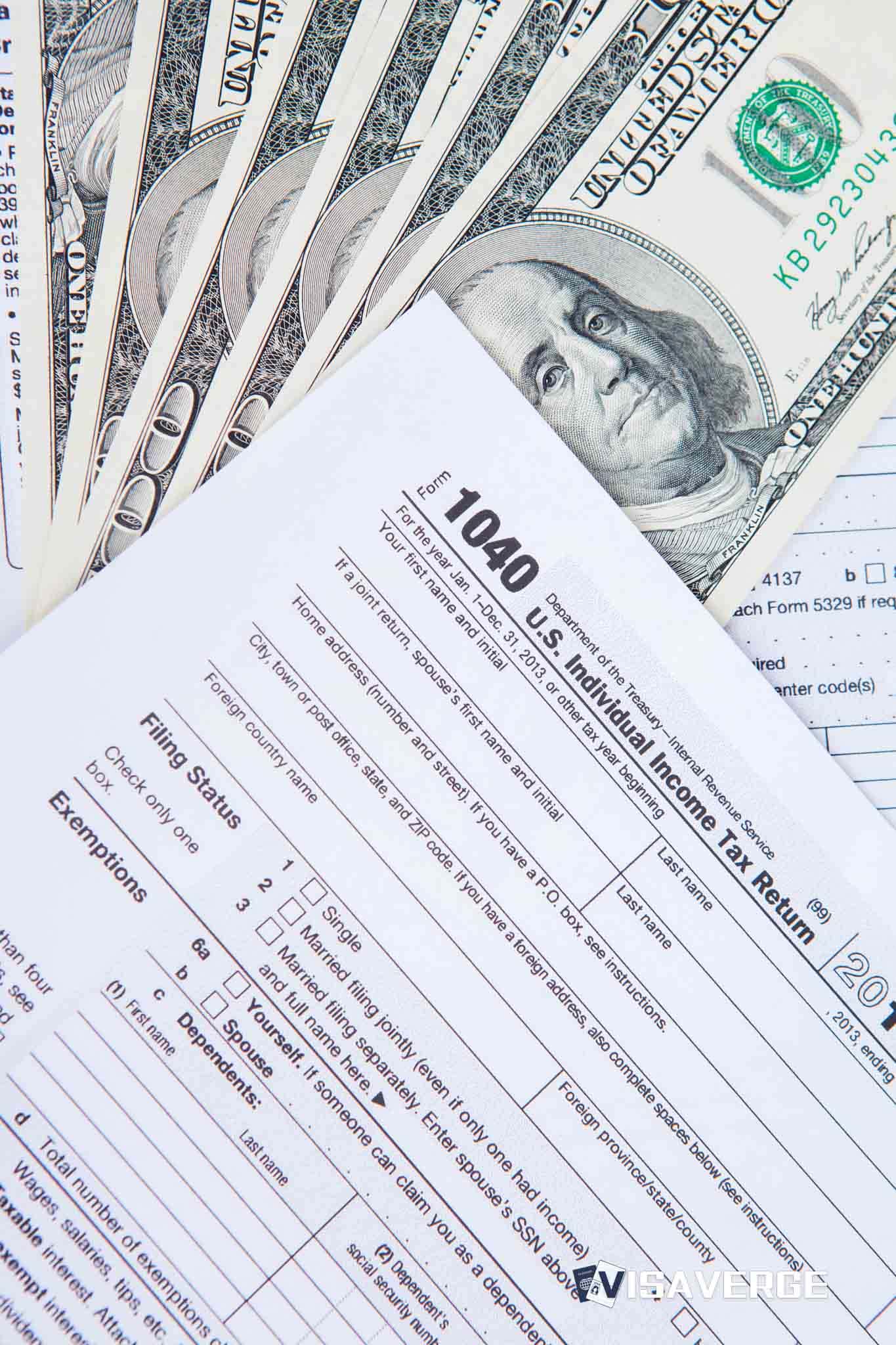December 18, 2025
- Updated headline to emphasize HB 111 and 5.19% withholding start
- Added family‑focused credits details, including $250 per child under 6
- Added one‑time refund rollout timing and maximum amounts (late May/early June 2025)
- Clarified that dependent exemption was not increased and credits, not exemptions, provide relief
- Added practical newcomer checklist and paycheck timing guidance (save June/July 2025 paystubs)
(GEORGIA) Georgia’s 2025 tax rules are now in force, and they matter for immigrants and other newcomers because state tax withholding and credits hit your paycheck fast—often before you feel “settled” in a new job, a new lease, and a new school for your kids. The big three changes are HB 111’s 5.19% flat rate, new family‑focused credits that start with the 2025 tax year, and a one‑time refund for 2023–2024 filers that began rolling out in late May/early June 2025 for eligible people. According to analysis by VisaVerge.com, Georgia’s mix of a simple flat rate and targeted family credits is becoming a real factor in relocation choices for workers on visas and for multinational employers placing staff in Atlanta and other job hubs.

First step: confirm your 2025 Georgia tax residency status
Your tax residency isn’t the same as your immigration status, but newcomers often confuse them. Georgia taxes:
- Full‑year residents on Georgia taxable income for the year.
- Part‑year residents on the portion of the year you lived in Georgia, with proration rules.
- Nonresidents on Georgia‑source income only, also with certain credits prorated.
If you moved to Georgia in 2025 for work (including many H‑1B, L‑1, O‑1, F‑1 OPT, and family‑based newcomers), you will often file as a part‑year resident. That matters because some benefits — including the young‑child credit described below — can be prorated using your Georgia income ratio.
What changed in 2025: the flat rate and effective dates
Georgia’s rate cut under HB 111 is straightforward but easy to miss during a busy move. Key facts:
- The law sets a 5.19% flat income tax rate for individuals and corporations for taxable years beginning on or after January 1, 2025.
- It applies to all 2025 income even though the law was effective July 1, 2025.
- Governor Brian Kemp signed HB 111 on April 15, 2025.
- Because the statute applies retroactively to the start of the year, you may see a split between early‑year withholding and the final tax calculation on your 2025 return.
Paycheck timeline: what to expect before and after July 1, 2025
If you worked in Georgia during 2025, your experience may look like this:
- January–June 2025: payroll systems may have withheld at the prior 5.39% rate.
- Starting July 1, 2025: employers must withhold at 5.19%, including for supplemental wages (bonuses, commissions).
- Early 2026 filing season: your 2025 Georgia return reconciles the year. If too much was withheld early in 2025, you’ll generally square it up when you file—often as a refund or a credit.
Practical tip for newcomers: save paystubs from June 2025 and July 2025. If your withholding doesn’t change after July 1, contact payroll quickly so you don’t have to correct errors at filing time.
Family relief starting in 2025: credits and the young‑child credit
Georgia did not increase a broad dependent exemption in 2025. Instead, family relief comes mainly through targeted credits that many immigrant families can use if they meet standard eligibility rules.
Georgia child and dependent care credit (tax years beginning Jan 1, 2025)
- For tax years beginning on or after January 1, 2025, Georgia’s child and dependent care credit equals 50% of the federal credit allowed under Internal Revenue Code §21.
- In practice: compute your federal child and dependent care credit first, then Georgia allows you to take half of that amount as a state credit.
- Part‑year residents and nonresidents generally compute a prorated Georgia credit based on the Georgia share of income.
Why this matters: childcare costs often spike after a move—when both parents are job‑hunting or working and extended family support is far away.
New $250 credit per qualifying child under age 6 (tax years beginning Jan 1, 2025)
Key points about the $250 nonrefundable credit per qualifying child under age 6:
- It is nonrefundable and has no carryforward. Unused credit does not roll to later years.
- Only one parent or guardian may claim the credit per child; tie‑breaker rules apply for custody situations.
- Part‑year residents and nonresidents receive a prorated amount using the Georgia income ratio.
Common pitfall for newly arrived families: mistakes occur when parents file separately (for example, one spouse abroad or during a transition year) and do not coordinate which parent claims the credit.
Part‑year and nonresidents may get prorated credits; coordinate who claims the $250 child credit in custody cases to avoid missing or duplicating the benefit on your 2025 return.
Important: The “one parent claims it” rule can cause surprises. Confirm who will claim the $250 credit before filing, especially in custody or transition situations.
The mid‑2025 one‑time refund for 2023–2024 filers
Georgia’s one‑time refund is separate from your 2025 return and is aimed at “qualified taxpayers” who filed valid 2023 and 2024 Georgia individual income tax returns. The Department of Revenue began issuing refunds in late May/early June 2025.
Maximum refund amounts (based on 2023 filing status):
- $250 — single or married filing separately
- $375 — head of household
- $500 — married filing jointly
Important calculation rule: the actual refund is the lesser of your 2023 Georgia tax liability or the maximum amount above. Additional points:
- Nonresidents and part‑year residents receive a prorated amount (Georgia income ratio).
- The refund is not taxable income for Georgia purposes.
- If you lived in Georgia in 2023 and 2024 and then moved for work, keep your Georgia mailing address updated and watch bank records if you used direct deposit.
Newcomer’s “first Georgia tax year” checklist with realistic timeframes
Week 1–2 after arrival (or after starting a Georgia job):
- Confirm your employer has your correct Georgia work location and withholding setup.
- Expect payroll to ask for Form I‑9 documents; employers use Form I‑9 for work‑authorization verification. USCIS posts the form and guidance at the official Form I-9 page.
Month 1–3:
- Build a simple folder (paper or digital) to collect:
- paystubs (especially around July 1, 2025),
- childcare invoices and provider info,
- proof of residence and dates (lease, utility bills),
- move‑related employment letters showing start dates.
During the year:
- If you move inside Georgia or to another state, keep your address current with immigration records when required.
- Many noncitizens use Form AR‑11 to report a change of address to USCIS; see the official change‑of‑address page for who must file and how.
Early 2026 (filing season for 2025 returns):
- Expect your 2025 return to be the year’s “true‑up.” That’s where HB 111’s 5.19% rate is applied to all 2025 taxable income and where family‑focused credits are claimed if you qualify.
- If you don’t have an SSN and are eligible to file, you may need an ITIN. The IRS explains Form W‑7 on its official Form W-7 information page. (This is a tax step, not an immigration status grant, but often arises for spouses and children in mixed‑status households.)
Where to check official updates and what to expect from Georgia authorities
- The Georgia Department of Revenue updates forms, instructions, and legislative summaries as rules take effect. The best source is the Georgia Department of Revenue’s official website, which posts publications and updates tied to HB 111, credits, withholding, and refund programs.
- If you need to challenge an assessment or a refund denial, note that HB 141 extended the protest/appeal window in certain situations from 30 to 45 days, effective July 1, 2025. This timing change can be important when you’re juggling travel, status paperwork, and family needs.
Planning beyond 2025: scheduled rate drops and military retirement exclusion
- Current law schedules 0.10‑point annual reductions beginning January 1, 2026, until the rate reaches 4.99%, but each cut depends on revenue triggers. If triggers aren’t met, a cut can be delayed.
- Beginning in tax year 2026, Georgia will allow an exclusion of up to $65,000 per spouse of military retirement income for taxpayers under 65. This affects immigrant and naturalized citizens who served, and military families relocating to Georgia, potentially changing after‑tax retirement planning and settlement decisions after active duty.
Key takeaway: For newcomers, the combination of a simpler flat rate, targeted family credits, and the one‑time refund can affect take‑home pay and relocation choices. Keep records, check withholding after July 1, 2025, and use the official resources linked above for forms and filing guidance.
Georgia’s 2025 tax updates introduce a 5.19% flat income tax rate and new family-focused relief. Key benefits include a $250 credit for children under six and a state child care credit matching 50% of the federal amount. Newcomers should monitor withholding changes effective July 1, 2025, and prepare for residency-based proration while tracking the mid-2025 one-time refund for previous filers.








